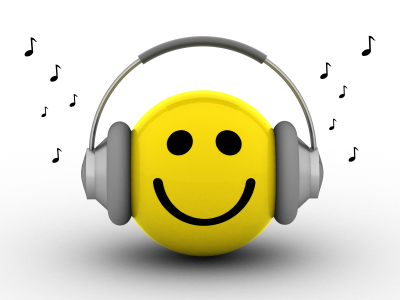
To begin with, music can make you happy. Scientists at the University of Missouri discovered that one’s mood could be improved simply by listening to upbeat music. Participants reported higher levels of happiness after listening to the upbeat music. Participants who listened to downbeat music did not seem to have any improvements in their mood.
Moreover, the tone of music a person is listening to represents the person’s mood. Research in the Journal of Consumer Research, published on Aug. 2013, shows that people who are suffering from relationship problems have a tendency to listen to sad music. In another experiment, people were presented with various frustrating situations and were asked to rate angry music versus joyful or relaxing music. Participants preferred angry music more when they were in a situation that made them angry.
In addition, music affects how we see neutral faces. A University of London research team discovered that the tone of the music that participants listened to affected their interpretation of neutral faces. After listening to a short piece of music, participants were apt to interpret a neutral expression as the tone of the music they heard.
Conjointly, music reduces our stress. Stress is a feeling of strain and pressure and is affected by a hormone called cortisol and a protein enzyme called alpha amylase. In the research published in the journal PLOS ONE, published on Aug. 5 2013, scientists measured the difference of the concentration of the two substances when participants listened to music. After being exposed to stress, their alpha amylase level returned faster when they were listening to classical music. The people listening to relaxing music showed a stress response that was the shortest. However, people who listened to nature sounds had the lowest levels of cortisol.
Finally, music even helps people exercise. You might have seen people exercising with their headphones on. Their action turned out to be scientifically beneficial. Music flushes the body with dopamine, a neurotransmitter that makes you feel happy. It also increases the release of norepinephrine, a hormone that brings about euphoria and elation. These two substances obliterate fatigue. In 1911, an American investigator named Leonard Ayres found that cyclists pedaled faster while a band was playing than when it was silent. After the discovery, psychologists have conducted hundreds of studies on the specific effect of music on exercise. The most important quality of workout music is the tempo. The tempo that maximizes the performance of athletes differed depending on the kind of exercise. Therefore, consider listening to music while exercising, if you are experiencing a slump.
м†АмЮСкґМмЮР © нПђнХ≠к≥µлМАмЛ†лђЄ лђілЛ®м†ДмЮђ л∞П мЮђл∞∞нПђ кЄИмІА


